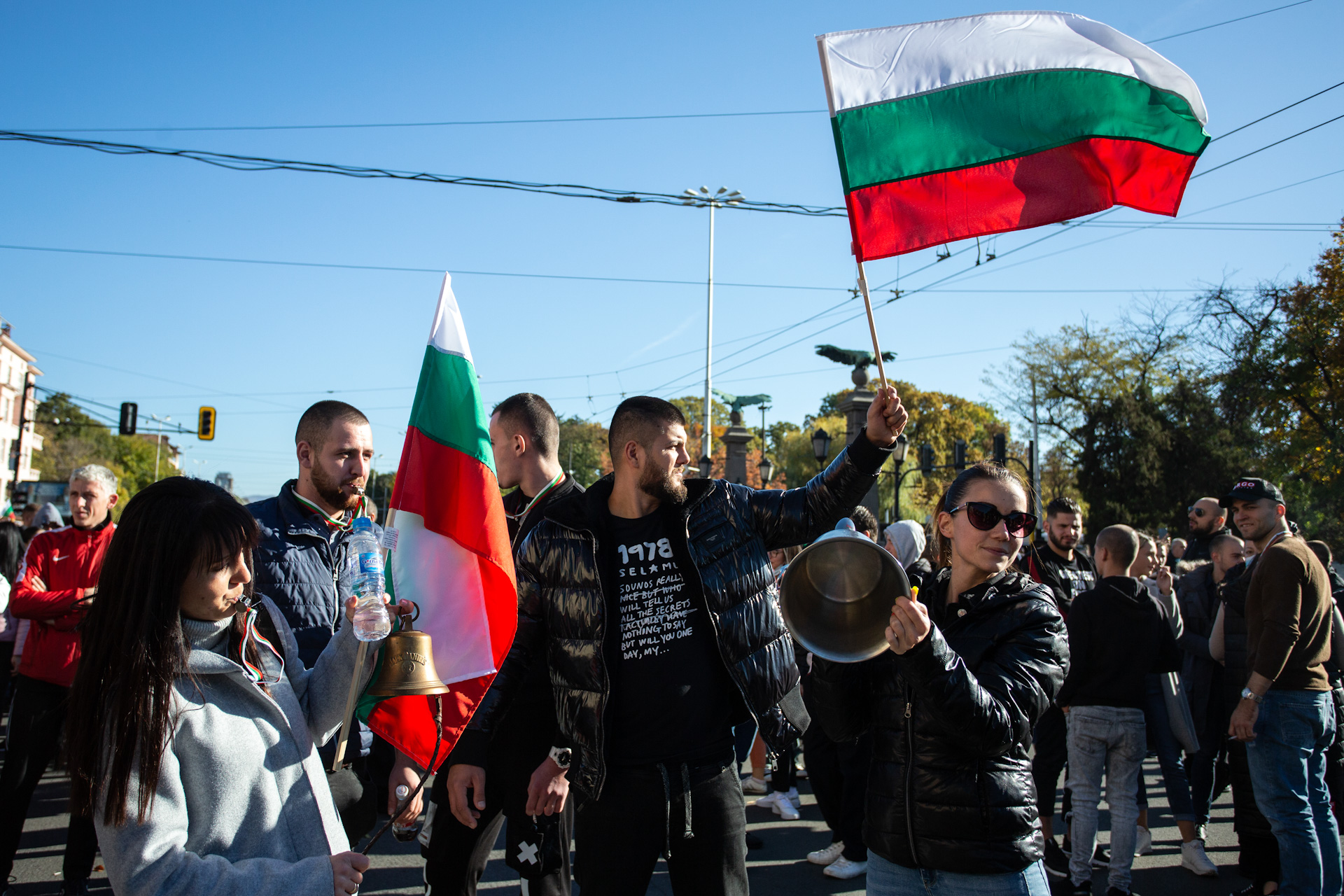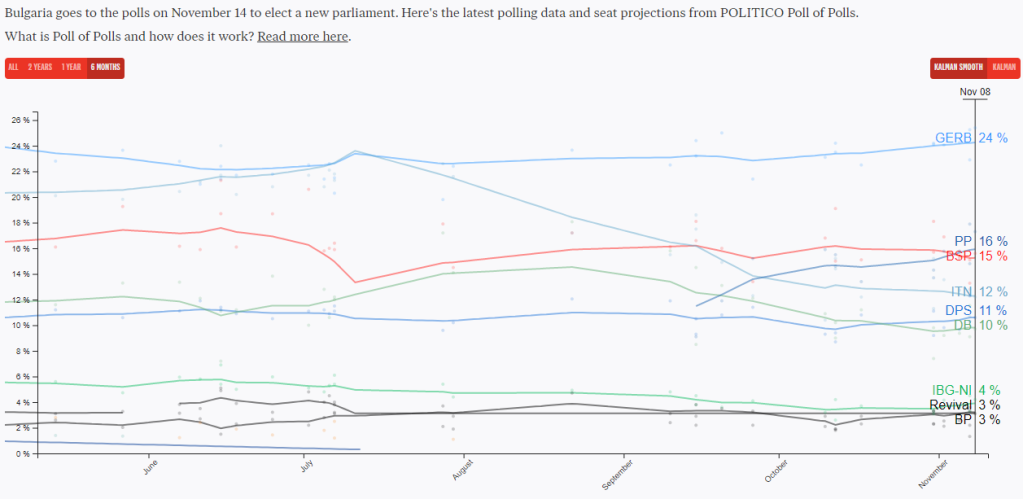Political Issues and Actors Evolve as Bulgaria Heads to its Third Round of Elections

On November 14, Bulgarians will head to the polls for the third parliamentary election of 2021 after the upstart “There Is Such a People” (ITN) party failed to assemble a governing coalition after the second election in July. Much has remained the same since Bulgarians first went to the polls last April and since IRI’s first blog in May outlining challenges for the next government, but some new developments stand to impact the November 14 elections. For example, the ongoing political crisis has significantly hampered the country’s response to the COVID-19 pandemic, with a deadly third wave currently ripping through the country. Here’s a look at three key elements of continuity and change:
An Unrelenting Pandemic
COVID-19 remains the greatest challenge facing the next Bulgarian government. After a decreased caseload during the summer raised hopes that the worst of the pandemic was over, the number of cases and deaths in Bulgaria has skyrocketed. A look at Bulgaria’s COVID metrics paints a grim picture:
Unlike the two previous waves of COVID-19 cases, the current surge has taken place despite widespread availability of vaccines. Fueled by high levels of vaccine skepticism, just over 20 percent of Bulgarians are currently vaccinated against COVID-19, the lowest rate in the EU. The ongoing pandemic has prolonged the country’s economic crisis and fueled inflation. The next Bulgarian government must prioritize increasing the country’s vaccination rate if it hopes to prevent future deadly waves of the virus.
The interim government recently rolled out a measure aimed at doing just that. Bulgarian officials introduced a COVID-19 “Green Certificate” as a mandatory requirement for access to restaurants, theaters, shopping malls, and other public places. Although the measure met some resistance, the Green Certificate and similar policies could enable the next government to increase vaccinations and finally gain control of the virus.
New Revelations of Old Corruption
IRI’s May blog documented the country’s existing corruption challenges. Since then, Bulgaria’s interim government has sought to expose new revelations of corruption against the previous Citizens for European Development of Bulgaria (GERB) government, including corruption in the state-run Bulgarian Development Bank’s small business loan program. In June, the U.S. sanctioned three prominent Bulgarians for offenses related to bribing government officials. Furthermore, former government minister Nickolay Mladenov and former MP Dlyan Peevski were both identified in the Pandora Papers as having hidden offshore firms, although both have denied any wrongdoing.
Meanwhile, IRI is assessing vulnerabilities to corruption at the municipal level through interviews with key government and non-government stakeholders in ten municipalities throughout the country. Utilizing its Vulnerabilities to Corruption Approach (VCA), IRI will produce an assessment report this winter and engage municipal working groups to act upon those findings in later stages of its program.
Further Fragmentation of the Opposition
The ongoing political crisis and continued salience of corruption has led to further fragmentation of the anticorruption opposition. In particular, the rise of the new centrist party “We Continue the Change” (PP) stands to play a significant role in the November 14 elections. Founded by former interim ministers Kiril Petkov and Assen Vassilev, PP is largely running on an anticorruption platform. Recent polls suggest the anticorruption message continues to resonate with the Bulgarian public, with the party expected to garner 15 percent of the vote. Suggesting a potential cannibalization of the protest vote, ITN has fallen substantially in the polls following its narrow victory in the July elections and is now projected to only finish fourth.
Citizens for European Development of Bulgaria (GERB) stands to benefit from this ongoing fragmentation, with polls projecting former Prime Minister Boyko Borissov’s party to regain its status as the largest party. In order to form a stable governing coalition, however, GERB will need to overcome the damage caused by Borissov’s fall from grace, stemming from allegations of widespread corruption. Nevertheless, with COVID-19 surging and a looming winter energy crisis, a GERB-led coalition could emerge from a fractured parliament.

Conclusion
When looking at these threads of continuity and change over the past year, perhaps most troubling is the continued health crisis caused by the COVID-19 pandemic, which could have been mitigated by higher vaccination rates. The country’s problematic vaccine hesitancy may not be separate from its problem of corruption. Corruption weakens trust in governing institutions and research has linked distrust in governing institutions to distrust in vaccines.[1],[2] Whichever government prevails from this moment of crisis will not only be faced with combating a pandemic and corruption, but also building trust in basic democratic institutions.